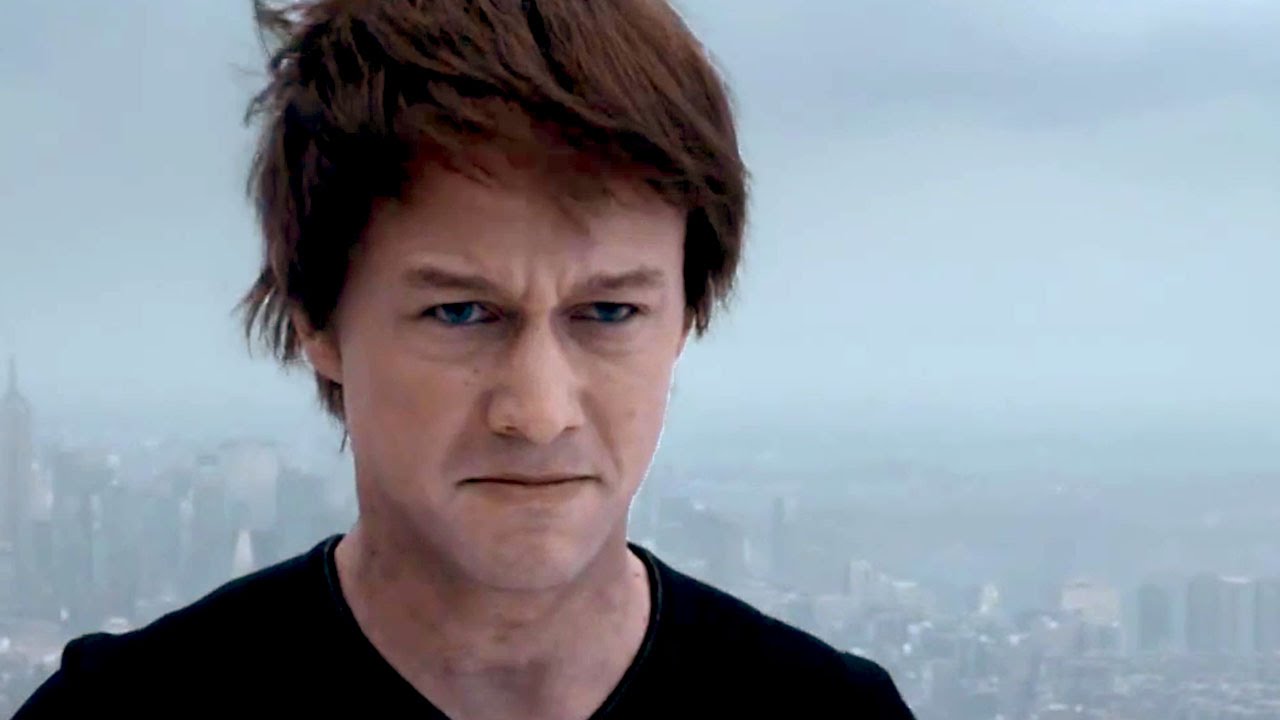
The ongoing controversy about the Academy not nominating any actors and actresses of color for their performances in 2015 is slowly dividing the internet between those who accept the problem of an Academy fellowship comprised of mostly white, mostly older, mostly male members; and the ones claiming they did nominate black, latino and other minority people and movies when they really thought they were great, at least in recent years.
While compiling a list of great movie performances that didn’t make the cut for the main race, though, we stumbled upon five actors/actresses of color – be it for their movies statuses as indies or genre movies, or simply because they’re not white, the fact is the Academy had the chance to nominate each one of these performances, and didn’t.
1. Charlize Theron in Mad Max: Fury Road
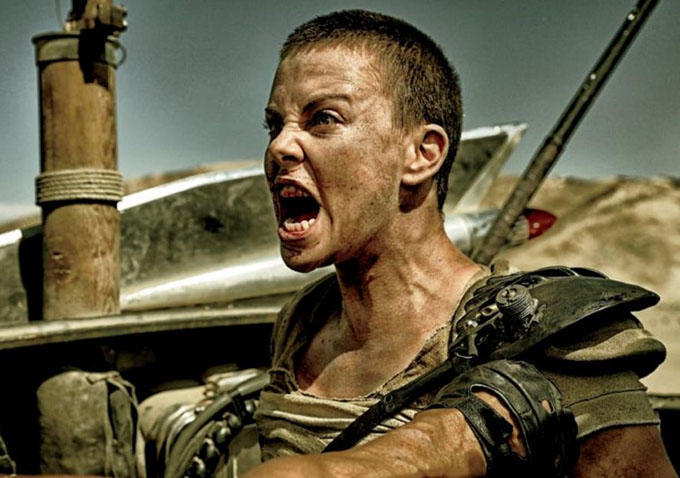
While it’s a more than pleasant surprise to see Mad Max recognized as one of the finest films of the year with no less than 10 nominations, it’s hard to swallow that Charlize Theron didn’t manage to earn her spot in the Best Actress list.
The Academy did well on recognizing action movies might be brilliant if made right, but it still wasn’t able to recognize that they may very well contain brilliant performances in them too. Imperator Furiosa is one of the most iconic characters of 2015 cinema not only because the script lets her be, but because Theron infuses her with raging anger and a touch of hope twinkling behind those tortured eyes.
Throughout the two hours of George Miller’s movie, she’s able to say more in a few facial expressions than most actress are able to do in whole movies. With its insanely paced narrative, Fury Road trusts its actors to bring depth and coherence to their characters, and Theron becomes the undeniable highlight of the film in that respect – she breathes life into Furiosa with the intensity and the intelligence of a masterful performer.
2. Mya Taylor in Tangerine
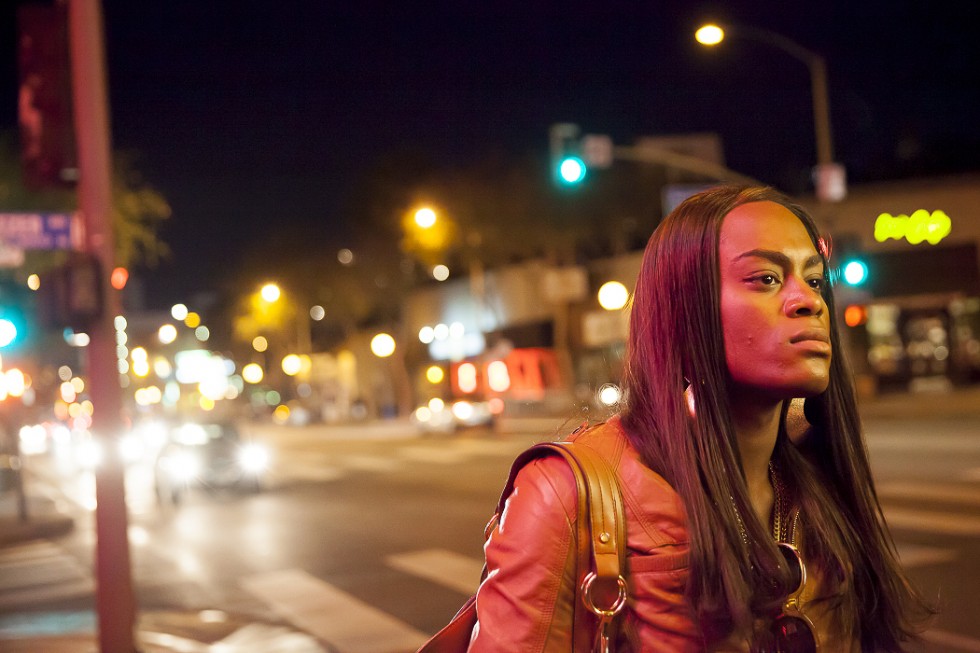
Mya Yalor’s and her movie Tangerine’s exclusion from the Oscar list didn’t come exactly as a surprise, but that doesn’t make it any less enfuriating. Sean Baker’s movie is brilliant not only because of its celebrated use of iPhone cameras in its gorgeous cinematography, but because it takes a long, hard look at people whose story just isn’t told by moviemakers even nowadays – transgender prostitutes of color, their desires, tragedies and friendships.
It also wrings a wickedly funny, eventually affecting story out of that universe, and puts its pair of debuting leading actresses (also transgender prostitutes of color) under the spotlight, with great effect.
Mya Taylor’s performance is the highlight, contrasting Kitana Kiki Rodriguez explosive and charismatic portrayal of lead character Sin-Dee with a more low-key, discrete sensibility. Watching her in Tangerine is watching a woman who’s been through much of what’s on screen, but who’s not just playing herself, but a version of herself that also strives to represent the messages, tones and realities represented by the movie she’s in.
It’s a striking, impressive performance, both for a newcomer and for any actress in the position of representing, on screen, a community that hasn’t been represented before.
3. Samuel L. Jackson in The Hateful Eight
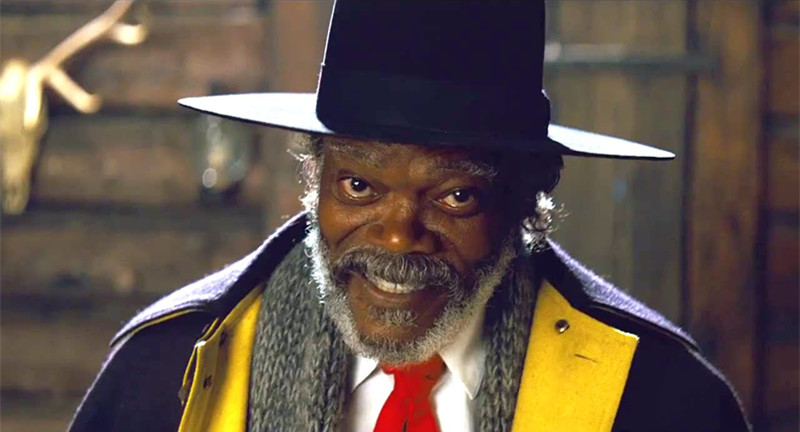
Among all his collaborations with Quentin Tarantino, Samuel L. Jackson’s most memorable one prior to The Hateful Eight has been probably as Jules in the now-classic Pulp Fiction. Major Marquis Warren, Jackson’s character in The Hateful Eight, is the best contender to that post – he’s a fascinating, multifaceted creation, the closest the film gets to a lead character, and a fundamental part of Tarantino’s discourse about race, gender and prejudice in the very theatrical The Hateful Eight.
Jackson gets plenty of juicy dialogue and bounces off his mostly straight-faced interpretation of his character with the whole cast, each one of them bringing a different kind of sensibility to their role.
But it’s in his huge monologue scene, smack-dab in the middle of The Hateful Eight, that Jackson’s performance pays off and shines through – when Major Marquis confronts the former Confederate General played by Bruce Dern, telling him of the General’s son demise in his hands, that Jackson’s understanding of Tarantino’s text makes the difference.
He chews the scenery and amps up the mean streak of the character, while at the same time maintaining the social discourse of his acts and his vengeance at arm’s length. It’s just brilliant acting, and the Academy being unable to recognize it is shameful.
4. Idris Elba in Beasts of No Nation
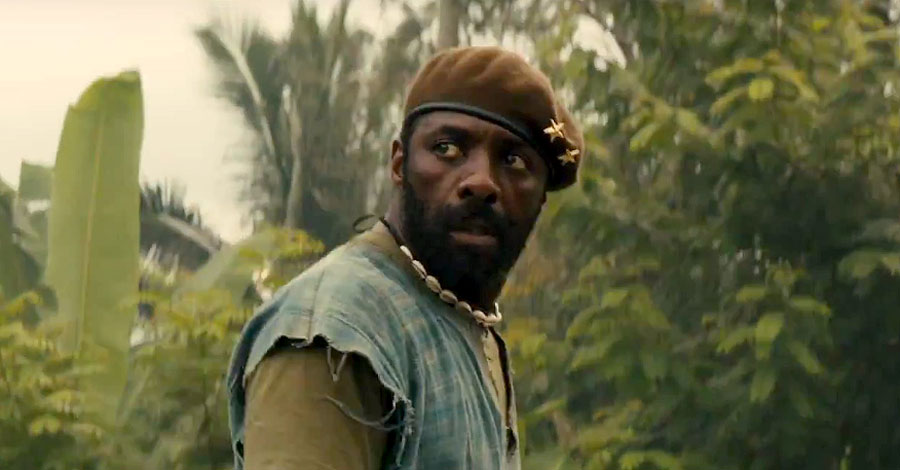
Cary Joji Fukunaga directed, wrote (based on Uzodinma Iweala’s novel) and shot Beasts of No Nation, his first movie after helming the first season of HBO’s True Detective, and also his first partnership with Netflix, who released the movie worldwide.
Although a well-conceived and executed movie that showcases a seldom seen and understood reality in cinema, Beasts’ undeniable highlight is Idris Elba’s supporting turn as the Commandant, the codename from which the kids he recruits as soldiers know him. He towers above Fukunaga’s film, incorporating all its themes and understanding all the subtleties inherent to the reality it wants to portray.
Elba’s villain is at turns sad and exasperating, pathetic and revolting, and sometimes all in one scene or line. Near the end of the movie, the narrative brings him full circle, and Elba’s performance shows his unshakeable will to grasp and hold on to power, even if it’s power over the ones who can’t defend themselves.
As much as the Academy apologists rationalize the lack of people of color among this year’s nominees, it’s hard to justify Elba’s exclusion – he’s definitely one of the most prominent figures of American cinema right now, and his talents are on full display in Beasts of No Nation.
5. Jake Gyllenhaal in Southpaw
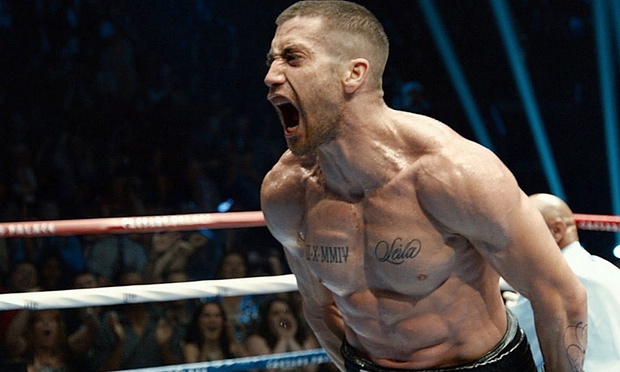
Gyllenhaal’s snub last year for his performance in Nightcrawler might have been more revolting, but his work in the flawed boxing movie Southpaw was certainly worth the award attention it didn’t get. He’s not only conventionally terrific and physically prepared for the role – swelled muscles and impressive physique aside, his interpretation of Billy Hope is spot on because it uses body language to convey everything Kurt Sutter’s script wants to say, and makes it exponentially more affecting.
Gyllenhaal lends Billy Hope this protracted posture, the habit of looking at people from below, searching for approval or confirmation, and the intensity to support that behavior in his scenes in the ring.
Not everyone would say, in Gyllenhaal’s early career, the he would went on to became one of Hollywood’s most confident actors, approaching every character from a big-picture point of view and working out the details in the process.
It works wonders here, as he slowly builds a complex and interesting character we can root for, expanding the climax’s impact and Hope’s relationships with the characters around him, as underdeveloped as they might be. The fact is Gyllenhaal makes the movie he’s in objectively and undeniably better, and there’s not a lot of actors around who can do that.